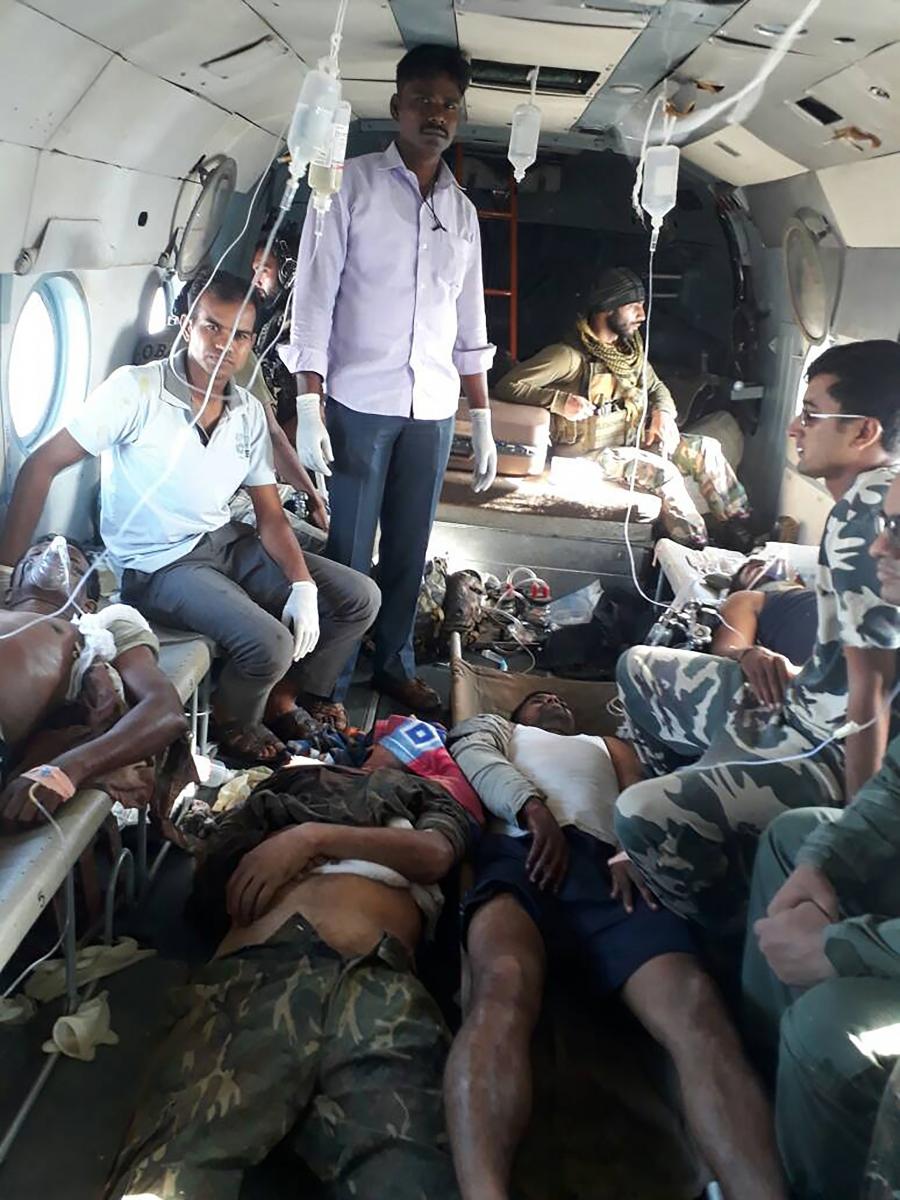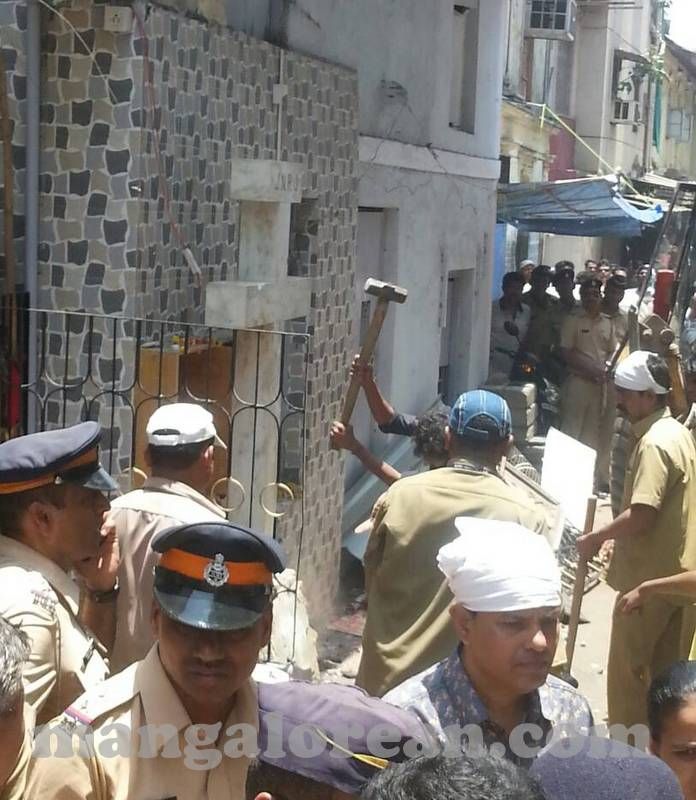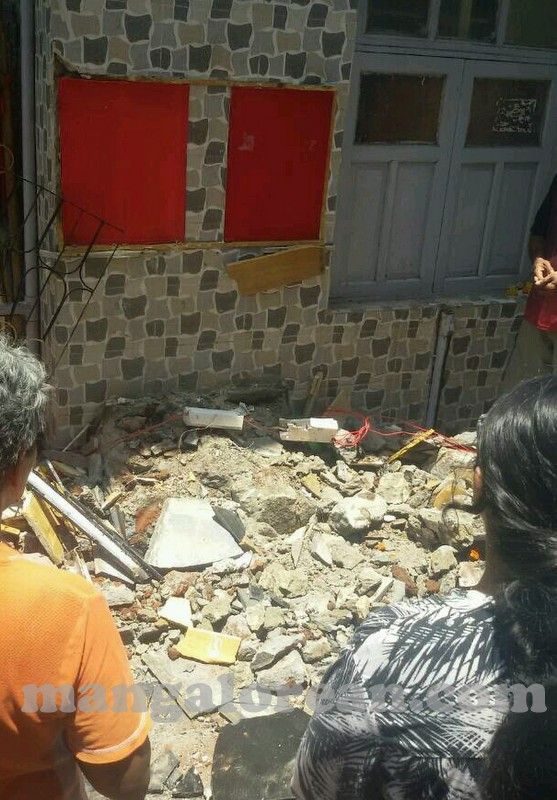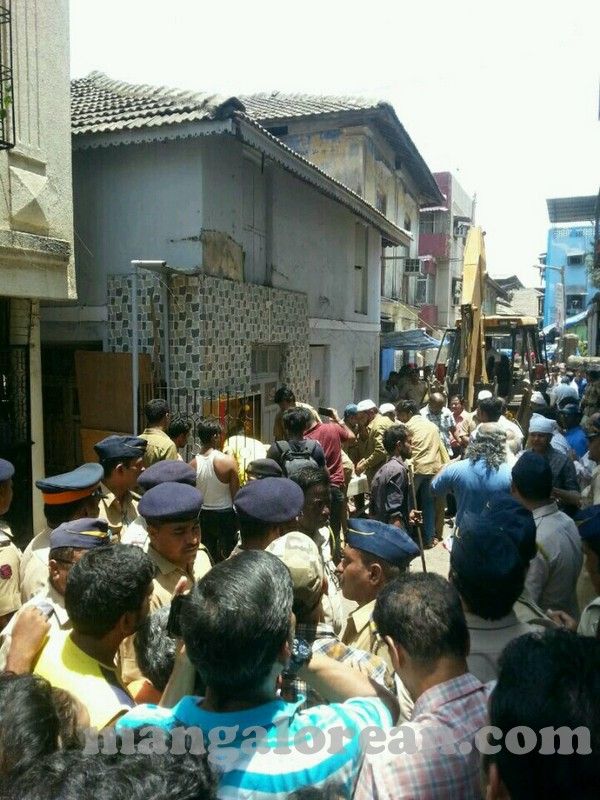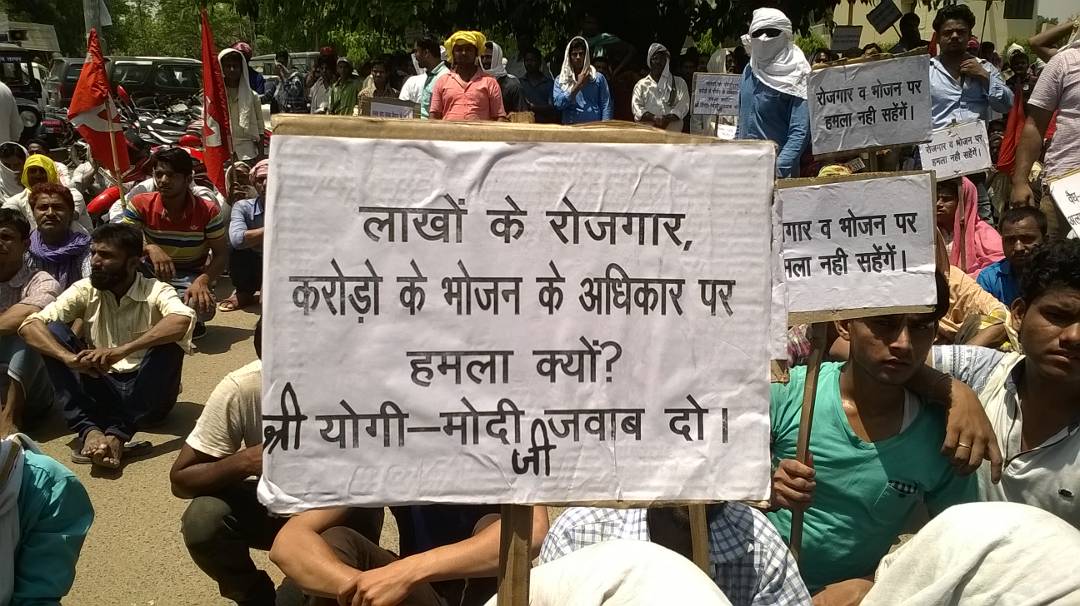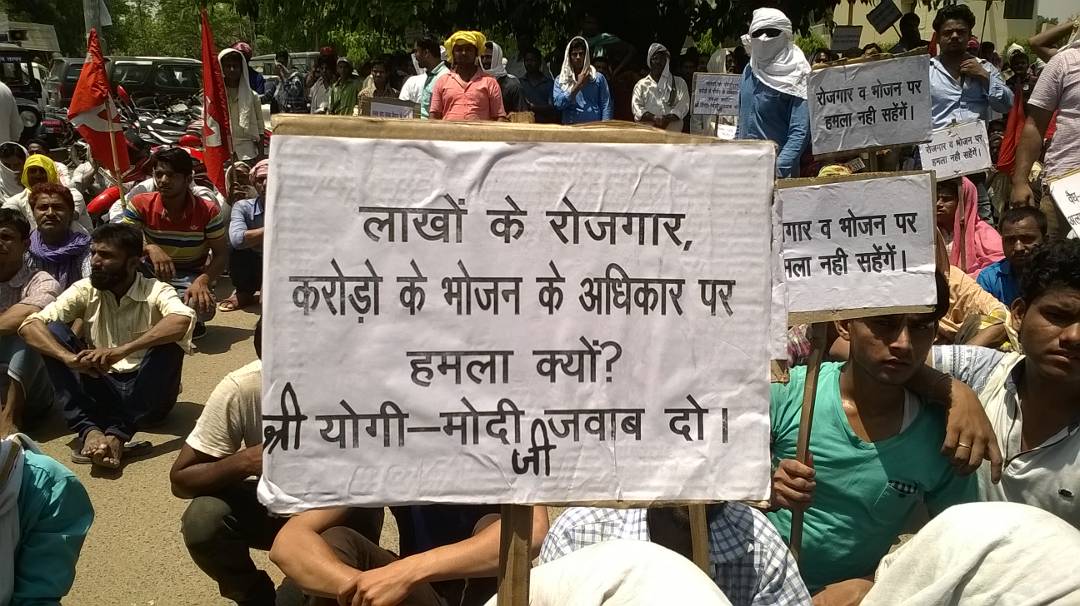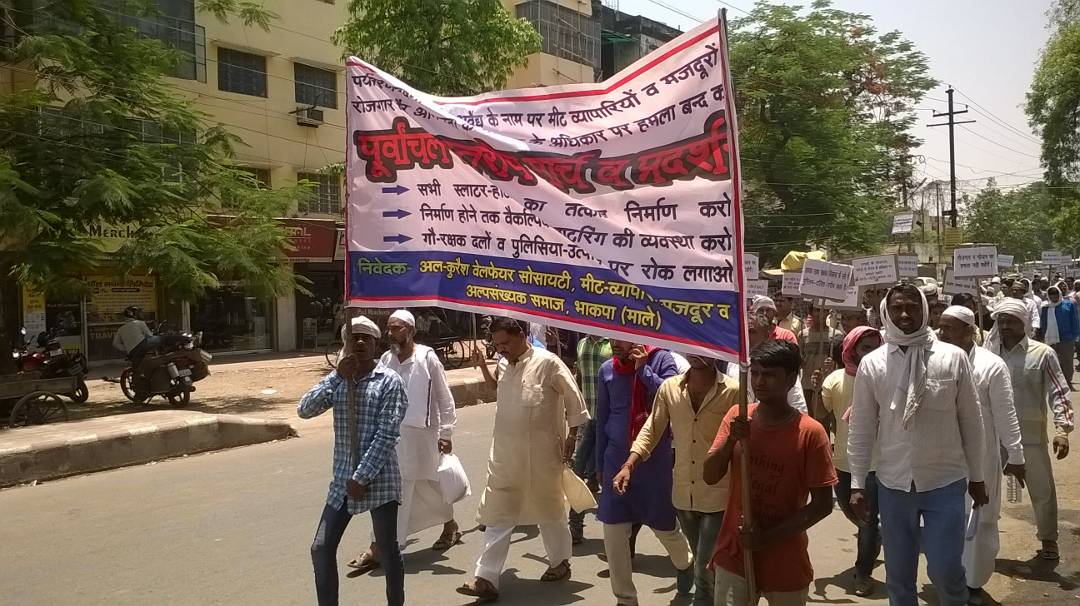
Images Courtesy: Mangolerean.com
The Brihanmumbai Municipal Corporation (BMC) demolished a 122-year-old cross in suburban Bandra on the order of the Bombay High Court directing the civic body to remove unauthorized religious structures-the demolition of the cross has now evoked sharp reactions from the Christian community, with the Bombay Catholic Sabha terming the action as an “insult” to the community. The HC had recently ordered removal of as many as 32 temples and 6 crosses from H west ward, which fall under ‘B’ Category. But as per Christian activists the matter will be legally pursued by the Archdiocese of Bombay, and presently makeshift cross has been installed on the site in an effort to offer reassurance to worshipers.
According to Fr Nigel Barrett, spokesman for the archdiocese of Bombay who said, “A notice by Sharad Ughade, Assistant Municipal Commissioner, pertains to a 2010 PIL pending before the Bombay HC, which relates to structures on public property but this was invalid since the cross which was demolished was on private land. Ughade was met with documentary evidence by the owner and community organizations, who had replied in time to the BMC notice. The matter will be pursued legally since the cross was demolished despite this. This move by BMC is an insult to our religion”.
Dolphy D’souza-the Former President of the Bombay Catholic Sabha; Former National Vice-President- All India Catholic Union; and spokesperson for SOUL-Save Our Land, and also convener of Police Reforms Watch speaking to Team Mangalorean over the phone said, ” Mumbai civic body Brihanmumbai Municipal Corporation’s (BMC) decision to demolish a cross at Bandra in Mumbai has sparked controversy. Members of the Christian community in the area allege there is selective action by the civic body, demand action against the Assistant Municipal Commissioner who carried out the act and want Chief Minister Devendra Fadnavis to intervene over the issue.”
“The cross was on a private property and not on any public or disputed property-so it should be restored to its original place. There are photographs and evidence to prove that the cross has been there at the particular place since 1895, and the court order which says illegal religious structures should be removed from public places should not apply to this structure since it is on a private land. Though the residents have provided evidence to the civic body officials, it has not been taken into considerations and the razing of the structure by BMC is an ‘unjust’ act. A formal complaint has been given by the residents at the local police station, and an FIR is registered over the issue. A massive protest rally is planned for tomorrow, where we request the Christians to join in large numbers, so that justice is served in this regard” added D’souza.

Images Courtesy: Mangolerean.com
In the meantime, sources from BMC reveal that the Category B structures are the ones which did interfere with the DP (Development Plan) of the city. The letters of the court order were sent to the concerned people and they were requested to remove these religious structures. Also, a meeting was arranged with the representatives of the religious structures along with local councilors. During the meeting, the court order was explained and another request was made to remove the unauthorized religious structures. Accordingly, six temples were found to be removed by themselves. On April 29 a temple and the cross, which were on the road and obstructing traffic movement, were removed. Action will continue in the next week on remaining structures of ‘B’ Category. Police has been providing good support to BMC in this regard.
However, Rita D’sa of Bombay Catholic Sabha termed the demolition of the 19th century cross as an “insult” of the Christian community. “This PIL (in the high court) only relates to religious structures on public property. The notice issued has no application to the said Holy Cross since it was constructed on a private property,” D’sa claimed. The court had directed that all illegal religious structures that have come up after September 29, 2009 should be demolished. A May 2011 Government Resolution (GR) had divided illegal religious structures into various categories. Category B pertains to illegal shrines that interfere with the city’s development plan.

Images Courtesy: Mangolerean.com
Also Read Related Statement Released and sent to the Municipal Commissioner, Mumbai and the Police Commissioner, Mumbai.
*WE DEMAND ARREST OF SHRI SHARAD UGADE, ASSISTANT MUNICIPAL COMMISSIONER H WEST WARD, BMC, FOR BLASPHEMY.*
On behalf of the entire Christian Community, we hereby register our strongest protest and displeasure against the Assistant Municipal Commissioner Shri Sharad Ughade, who has illegally and deliberately by taking law in his own hands with the help of Staff of H West Ward, BMC along with Police Protection from Bandra West Police Station intentionally demolished the Holy Cross ( erected in or about 1895) with a Bulldozer with an intent to damage/defile the place of worship which is held sacred by Christians thereby insulting the religion of Christians with clear knowledge by doing so he and others would insult the Christian Community.
– The said Holy Cross is situated on a private land being Plot No.38 situate at C.S. No.A/650 near D’monte Street and Bazar Road, Bandra West Mumbai 400 050.
-The notice issued on 26th April 2017 Assistant Municipal Commissioner Sharad Ughade gives reference to Public Interest Litigation No.104 of 2010 pending Hon’ble Bombay High Court. This PIL only relates to religious structures on public property. As such the notice in question issued to the said Holy Cross had no application to the said Holy Cross since same is constructed on a private property. The Owner /the Community Organizations had written/replied few days to the said notice and even met Shri Sharad Ughade with documentary evidence including Revenue Plan/Property Card and explained the legal position.
– However, today (29 April 2017) at about 10.30 am Assistant Municipal Commissioner Sharad Ughade along with staff of H/West Ward along with Police Officials arrived at the site, but the locals vehemently opposed the said illegal and deliberate demolition but Shri Ugade was adamant even quoted that “Humne EK Mandir Toda Hai to ek Cross bhi todna padega”. Thereafter Sharad Ughade along with staff of H/West Ward along with Police Officials demolished the said Holy Cross. ( photographs attached )
– This is nothing but blasphemy. An outrageously ridiculous reasoning which not only defies law of land but does not appeal to reason. This wanton and deliberate action on the part of Sharad Ughade and H/West Staff.
– How can a responsible Public Servant make such an irresponsible statement in full public view. This statement by Shri Ugade has been knowingly made by him disobeying the law thereby caused injury to the members of the Christian Community.
-This is record that one Kaka Shidu Maske, AMC had filed a detailed Affidavit in Writ Petition No.2063 of 2002, giving therein detailed list of alleged illegal religious structures and shrines, wherein 67 such structures have been then noticed by BMC in H/West Ward, but nowhere the Holy Cross mentioned above and which has been demolished today figures. it cannot figure for the simple reason that the said Holy Cross was on private property.
– As such we kindly request you to immediately file an FIR against Sharad Ughade and H/West Staff and also request hon’ble Municipal Commissioner to suspend Sharad Ughade and H/West Staff, who have conspired with each other with common intention and offence be registered under Sections, 34, 120B, 166, 295, 298, 425, 441 and 506 of IPC.
-We are alive of the facts that some local Politicians will now rush to the hon’ble Chief Minister to smooth the ruffled feathers.
– We hereby demand that the cost of re-erection of this Holy Cross may be recovered from the salary of Sharad Ughade and concerned H/West Staff.
– IN CASE OF YOUR FAILURE TO TAKE ACTION IN ACCORDANCE WITH LAW, WE WILL BE CONSTRAINED TO TAKE FURTHER ACTIONS AS DEEMED FIT.
– Bombay Catholic Sabha (Rita D’Sa)
– Save Our Land (Dolphy D’Souza/Greg Pereira/Stanley Fernandez.com)
– Watchdog Foundation (Nicholas Almeida/Godfrey)
– Bombay East Indian Association (Adv. Vivian D’Souza)
